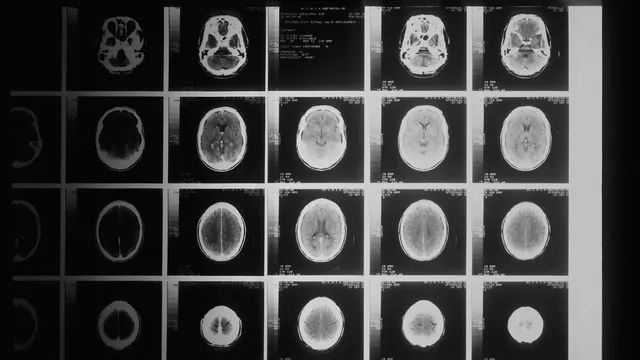
Breakthrough Brain Scan Sheds Light on Diagnosing Schizophrenia: Here’s What You Need to Know!
2024-11-07
Author: Li
Key Insights You Can't Miss
Researchers found that schizophrenia manifests distinct brain patterns related to decision-making in stressful situations, particularly involving conflicting information.
This potential biomarker may significantly enhance diagnostic processes and treatment tracking for schizophrenia.
The discovery paves the way for broader clinical applications, helping to assess cognitive flexibility in various mental health concerns.
Understanding the Research
Led by physician-scientist Michael Halassa, along with neuropsychologist Neil Woodward, the study assessed brain cell activity as participants—comprising both neurotypical individuals and schizophrenia patients—responded to various decision-making scenarios.
Strikingly, patients with schizophrenia exhibited unique neural activity patterns, particularly when faced with conflicting information.
“As humans, our brains have evolved to prioritize bits of information essential for making sound decisions,” explained Halassa. “However, individuals with schizophrenia often lack this ability, leading to inconsistent decision-making outcomes.”
Real-Life Implications
To illustrate, consider dining at your favorite restaurant. While a typical diner may forgive a singular poor experience and return, someone with schizophrenia might disregard all previous good visits, focusing solely on this one negative encounter.
This cognitive rigidity reinforces the critical challenge faced by those with the condition.
Animal models have indicated that the dysfunction can be traced to impaired interactions between neural structures that manage complex information processing, particularly the dorsolateral prefrontal cortex and the mediodorsal thalamus.
Inspired by these findings, the research team devised cognitive tests and imaging techniques to delve deeper into this circuitry in humans, striving for more precise diagnostic criteria.
Study Highlights
The experiment involved 40 volunteers tasked with identifying target locations based on a sequence of cues that varied in conflict.
Results showed that while neurotypical participants performed consistently well even under high-conflict conditions, those with schizophrenia struggled significantly as the ambiguities increased—highlighting a deeper vulnerability to sensory distractions.
“To summarize, schizophrenia patients showcased a critical deficit in coping with conflicting information, which was mirrored in their brain activity and overall performance,” said Anna Huang, a research assistant professor at Vanderbilt University and co-author of the study.
Future Directions
The research team aims to validate these findings through subsequent experiments using larger subject pools undergoing brain scans as they navigate additional ambiguous tasks.
This study is part of an expansive initiative led by Halassa's lab to correlate neural activity with clinically relevant data that may enhance patient care.
The implications of this research are substantial—not only does it offer a potential pathway for clearer diagnoses of schizophrenia, but it could also revolutionize ongoing treatment approaches by establishing benchmarks for cognitive flexibility.
Stay tuned as this groundbreaking research unfolds, offering hope to millions affected by schizophrenia.



 Brasil (PT)
Brasil (PT)
 Canada (EN)
Canada (EN)
 Chile (ES)
Chile (ES)
 España (ES)
España (ES)
 France (FR)
France (FR)
 Hong Kong (EN)
Hong Kong (EN)
 Italia (IT)
Italia (IT)
 日本 (JA)
日本 (JA)
 Magyarország (HU)
Magyarország (HU)
 Norge (NO)
Norge (NO)
 Polska (PL)
Polska (PL)
 Schweiz (DE)
Schweiz (DE)
 Singapore (EN)
Singapore (EN)
 Sverige (SV)
Sverige (SV)
 Suomi (FI)
Suomi (FI)
 Türkiye (TR)
Türkiye (TR)